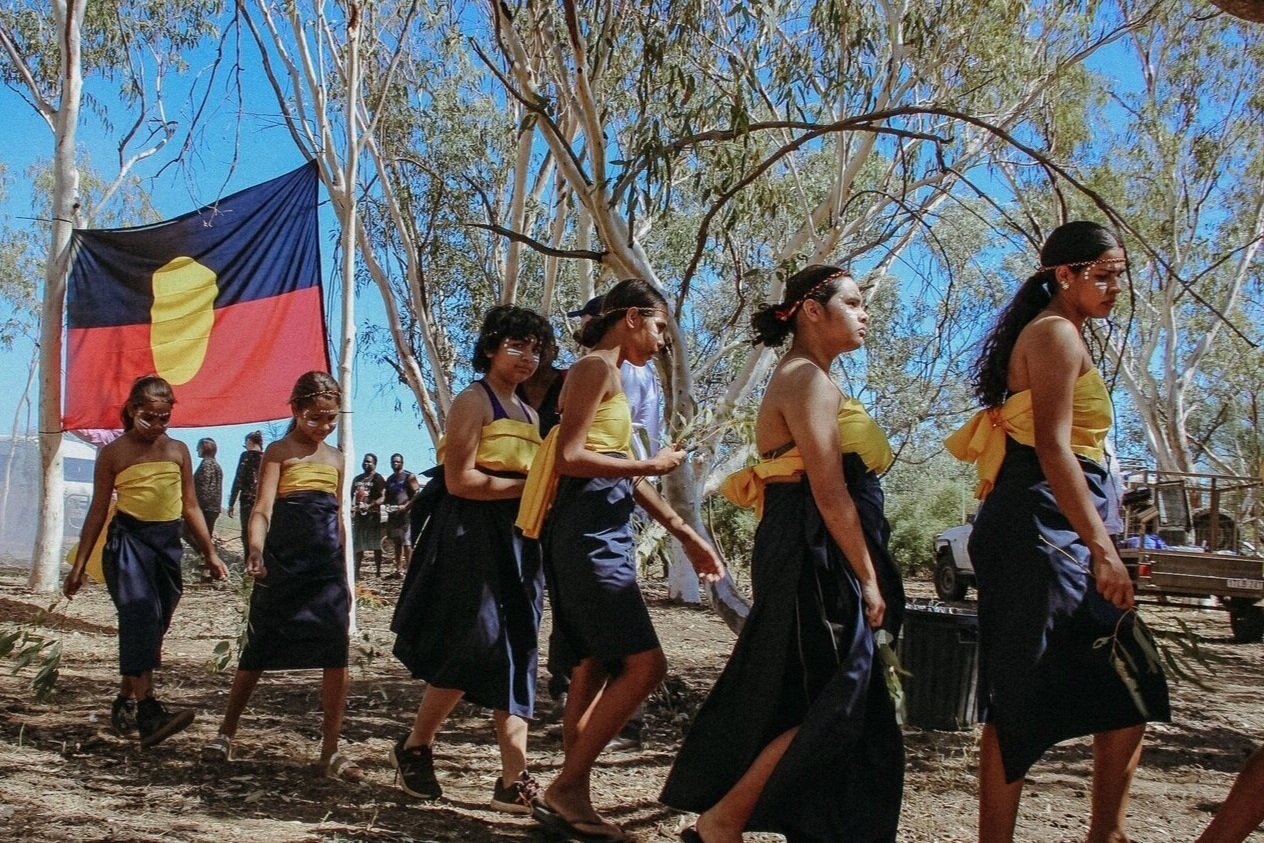TreatIES with Indigenous Peoples
A treaty is a legally binding agreement between two or more parties, usually states or sovereign powers.
Treaties are necessary to recognise historic wrongs and provide an opportunity to recast the relationship between Indigenous and non-Indigenous people.
Treaty is reached after a process of negotiation, which involves the parties coming together as equals to decide on legally binding responsibilities and duties. A negotiation suggests that the parties work together towards a mutually beneficial agreement.
Treaties are sometimes called Settlements, Agreements, Pacts, Accords, Covenants, or Compacts. Whatever they are called, they bind the parties together, outline their rights and responsibilities, and define the ‘rules’ of their relationship.
'The calls for a treaty go to the heart of the juridical denial in Australian case law of the existence of Aboriginal nations in Australia prior to the seizure of the land and consequent dispossession of Indigenous people by the British Crown. This denial has accorded Australia the status of an anomaly among the settler colonial states ― such as New Zealand where the Treaty of Waitangi has considerable force, and Canada and the United States of America where treaties are the bedrock of relations between the state and Aboriginal peoples.’
– Professor Marcia Langton, ‘Australia’s moral legitimacy depends on recognising Indigenous sovereignty’, 8 July 2019
Treaties across the world
Agreement making with First Nations peoples is not new. Many settler-colonial states have have entered into treaties with First Nations peoples. This includes New Zealand, Canada and the United States.
Australia is one of the few settler-colonial Commonwealth nations not to have a treaty between the state and the First Nations. That said, there are many existing agreements between Indigenous and non-Indigenous peoples in Australia.
Treaties in Australia
The issue of Treaty in Australia has been on the agenda since the independent Aboriginal Treaty Committee was established in 1979. The Committee folded in 1983.
In 1988, Treaty was again thrust into the spotlight when the Central and Northern Land Councils presented the Barunga Statement to then Prime Minister Bob Hawke. The Barunga Statement called on the Government to recognise the rights of Indigenous Australians. The Hawke Government actively supported the idea of a treaty, but no agreement was reached and the idea of a treaty was later abandoned in favour of a policy of reconciliation.
In 2017, the Uluru Statement from the Heart called for a Makarrata Commission to supervise a process of agreement-making, alongside a process of truth-telling and a constitutionally enshrined First Nations Voice to parliament. The Makarrata Commission would support the negotiation of formal agreements between Aboriginal and Torres Strait Islander peoples and Australian governments at national and regional levels.
State and territory treaties +
At state and territory level, a number of Treaty processes have begun.
2016 was a significant year with the Northern Territory, Victoria and South Australia all committing to Treaty processes. In Victoria, this led to the establishment of the First Nations Peoples' Assembly in 2019. 2019 also saw the Northern Territory appoint a Northern Territory Treaty Commissioner. These mechanisms are designed to support Treaty-related consultations and negotiations. South Australian negotiations ceased in 2018 without a final resolution.
In 2019, the Queensland Government signed a 'Tracks to Treaty' commitment and engaged in extensive community consultations.
See more information on treaty negotiations in the Northern Territory, Queensland and Victoria. For information on the comprehensive settlements that have occurred in various jurisdictions, including Western Australia, see Agreement Making in Australia.
Hobbs + Williams on the Noongar Settlement and Treaty +
We have gratefully been granted permission by the Sydney Law Review to re-publish Harry Hobbs and George Williams' analysis of the South West Native Title Settlement, a negotiated agreement between the Noongar people and the Western Australian Government. In this article, Hobbs and Williams argue that this agreement is Australia’s first treaty.
We are in the process of inviting commentary on this important article.
Read the original article: Harry Hobbs and George Williams, 'The Noongar Settlement: Australia's First Treaty' (2018) 40(1) Sydney Law Review 1.
Read more +
There are a number of useful resources on Treaty that you can visit for more information:


